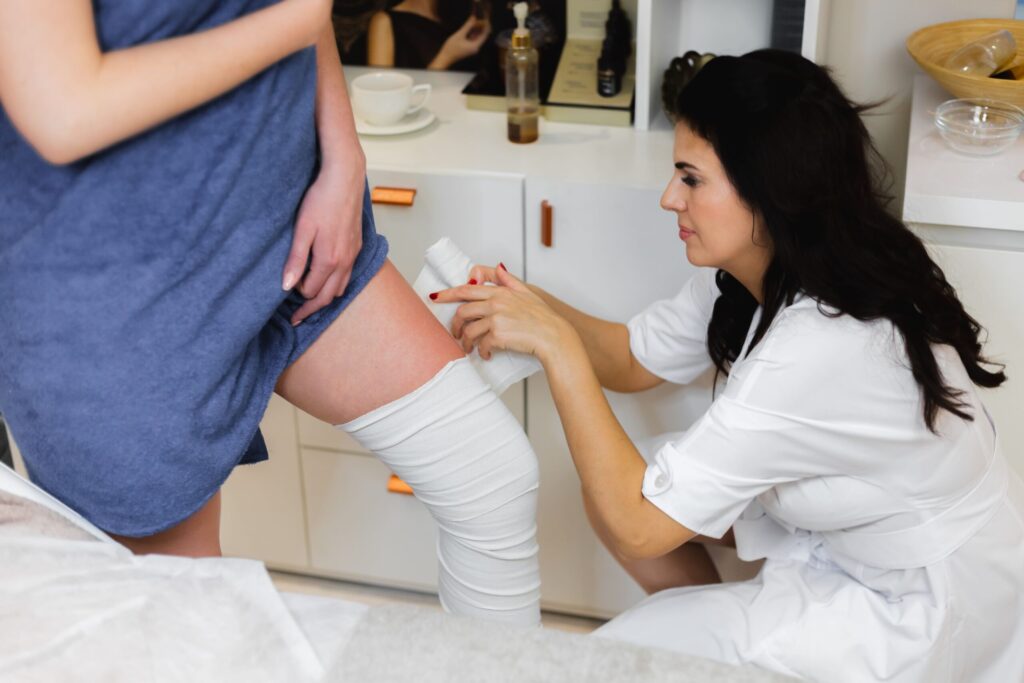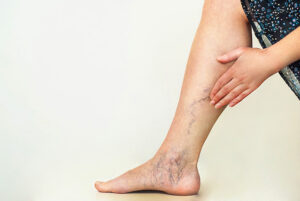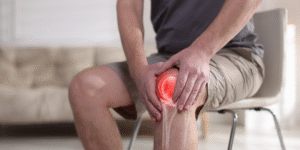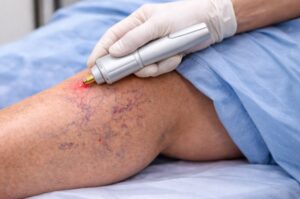Introduction
Peripheral neuropathy is a condition that affects the peripheral nerves, causing pain, tingling, and numbness in the affected areas. It is a common problem that can significantly impact a person’s quality of life. In this article, we will explore peripheral neuropathy in pain management, understanding its causes, symptoms, and available treatment options. We will also address frequently asked questions to provide a comprehensive guide to dealing with this condition effectively.
What is Peripheral Neuropathy?
Peripheral neuropathy refers to a dysfunction or damage to the peripheral nerves that carry signals from the brain and spinal cord to the rest of the body. These nerves are responsible for sensory perception, motor function, and autonomic processes. When they are damaged, it can lead to a wide range of symptoms, including pain, numbness, weakness, and problems with coordination.
Common Causes of Peripheral Neuropathy
There are several factors that can contribute to the development of peripheral neuropathy. Some common causes include:
Diabetes: Uncontrolled blood sugar levels can damage nerves over time, leading to diabetic neuropathy.
Autoimmune disorders: Conditions such as lupus, rheumatoid arthritis, and Guillain-Barré syndrome can cause peripheral neuropathy.
Infections: Certain infections, including shingles, HIV, and Lyme disease, can damage the peripheral nerves.
Vitamin deficiencies: Lack of essential vitamins, particularly B vitamins, can result in nerve damage.
Toxic exposure: Exposure to toxins like heavy metals, certain medications, and chemicals can contribute to neuropathy.
Trauma: Injuries or accidents that damage the nerves can lead to peripheral neuropathy.
Heredity: Some individuals may have a genetic predisposition to developing neuropathy.
It is essential to identify the underlying cause of peripheral neuropathy to determine the most appropriate treatment plan.
Symptoms of Peripheral Neuropathy
The symptoms of peripheral neuropathy can vary depending on the nerves affected and the severity of the condition. Common symptoms include:
Pain: Peripheral neuropathy often causes a sharp, burning, or shooting pain in the affected areas. This pain may be constant or come and go.
Numbness and tingling: Many individuals with peripheral neuropathy experience a sensation of numbness, tingling, or “pins and needles” in their hands, feet, or other affected areas.
Muscle weakness: Weakness in the affected muscles can make it challenging to perform everyday tasks.
Loss of coordination: Peripheral neuropathy can affect balance and coordination, leading to an increased risk of falls.
Sensitivity to touch: Some individuals may experience heightened sensitivity to touch or temperature changes in the affected areas.
If you experience any of these symptoms, it is crucial to seek medical attention for an accurate diagnosis and appropriate treatment.
Medical Treatments for Peripheral Neuropathy
Medications: Prescription drugs, such as pain relievers, antidepressants, and anticonvulsants, may be prescribed to alleviate peripheral neuropathy symptoms.
Topical Treatments: Certain creams or ointments can provide temporary relief by numbing the affected areas or reducing inflammation.
Nerve Stimulation: Techniques like peripheral nerve stimulation (PNS) and spinal cord stimulation (SCS) can help manage neuropathic pain.
Physical Therapy: Exercises and physical therapy can improve strength, balance, and mobility while reducing pain and discomfort.
Lifestyle Changes for Peripheral Neuropathy Management:
Healthy Diet: Following a balanced diet that includes essential vitamins and minerals can support nerve health and overall well-being.
Regular Exercise: Engaging in low-impact exercises, such as walking or swimming, can help improve blood circulation and alleviate symptoms.
Stress Reduction: Managing stress through relaxation techniques like meditation or yoga can contribute to pain relief and enhance overall quality of life.
Quitting Harmful Habits: Smoking and excessive alcohol consumption can worsen peripheral neuropathy symptoms. Quitting or reducing these habits is essential for better management.
Self-Care Tips for Peripheral Neuropathy Relief:
Foot Care: Proper foot hygiene, regular inspections, and using comfortable shoes can help prevent complications and reduce discomfort.
Pain Management Techniques: Applying heat or cold packs, practicing mindfulness, or using over-the-counter pain relievers can provide temporary relief.
Assistive Devices: Utilizing devices like orthopedic shoes, braces, or walking aids can improve mobility and reduce pain while performing daily activities.
FAQs about Peripheral Neuropathy in Pain Management
Here are some frequently asked questions about peripheral neuropathy in pain management:
Q: Can peripheral neuropathy be cured?
A: While peripheral neuropathy itself may not be curable, its symptoms can be managed effectively through various treatment options.
Q: How is peripheral neuropathy diagnosed?
A: Diagnosis typically involves a thorough medical history, physical examination, and additional tests such as nerve conduction studies and blood tests.
Q: What are the available treatment options for peripheral neuropathy?
A: Treatment may include medications to manage pain, physical therapy, nerve stimulation techniques, lifestyle modifications, and addressing the underlying cause if possible.
Q: Can peripheral neuropathy be prevented?
A: While it may not always be possible to prevent peripheral neuropathy, certain lifestyle choices can help reduce the risk. Maintaining a healthy diet, managing underlying conditions like diabetes, avoiding excessive alcohol consumption, and protecting yourself from toxins and injuries can all contribute to preventing or minimizing the development of peripheral neuropathy.
Q: Are there any natural remedies or supplements that can help with peripheral neuropathy?
A: Some individuals find relief from peripheral neuropathy symptoms through the use of certain natural remedies or supplements. These can include alpha-lipoic acid, acetyl-L-carnitine, B vitamins, magnesium, and herbal remedies like evening primrose oil or St. John’s wort. However, it is crucial to consult with a healthcare professional before starting any new supplements to ensure safety and efficacy.
Q: Can pain medication effectively manage peripheral neuropathy pain?
A: Pain medication can be an essential component of managing peripheral neuropathy pain. Over-the-counter pain relievers like acetaminophen or nonsteroidal anti-inflammatory drugs (NSAIDs) may provide some relief for mild symptoms. In more severe cases, prescription medications such as antidepressants, anticonvulsants, or opioids may be prescribed. It is essential to work closely with a healthcare provider to find the most effective and safe pain management approach.
Q: Can physical therapy help with peripheral neuropathy?
A: Yes, physical therapy can be highly beneficial in managing peripheral neuropathy. A physical therapist can develop a customized exercise program that focuses on improving balance, strength, flexibility, and coordination. Additionally, techniques such as transcutaneous electrical nerve stimulation (TENS) or low-level laser therapy (LLLT) may be utilized to help alleviate pain and promote nerve function.
Q: Is there a link between peripheral neuropathy and mental health?
A: Yes, living with peripheral neuropathy can have a significant impact on a person’s mental health. Chronic pain, loss of function, and the challenges of managing daily activities can lead to anxiety, depression, or other emotional issues. It is crucial to address both the physical and mental aspects of the condition and seek support from healthcare professionals, support groups, or therapists as needed.
Q: Can alternative therapies like acupuncture or massage help with peripheral neuropathy?
A: Some individuals report experiencing relief from peripheral neuropathy symptoms through alternative therapies like acupuncture, massage, or chiropractic care. While the evidence is limited, these therapies may help promote relaxation, improve circulation, and reduce pain for some individuals. It is essential to consult with a qualified practitioner and ensure they have experience in treating peripheral neuropathy.
Conclusion
Peripheral neuropathy can be a challenging condition to manage, but with the right approach, individuals can find relief from pain and improve their overall quality of life. By understanding the causes, symptoms, and available treatment options, individuals can work closely with healthcare professionals to develop a personalized plan that addresses their specific needs. Whether through medication, physical therapy, lifestyle modifications, or alternative therapies, there are options available to help manage peripheral neuropathy effectively.
If you are experiencing symptoms of peripheral neuropathy, it is essential to consult with a healthcare professional for a proper diagnosis and guidance on the best course of action. Remember, each individual’s experience with peripheral neuropathy may vary, and it may take time to find the most effective treatment approach. With patience and support, it is possible to regain control and minimize the impact of peripheral neuropathy on daily life.







